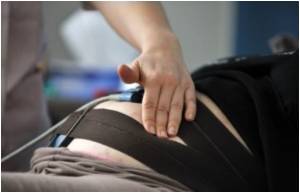As jackets go it looks far from fashionable, but its Japanese maker cannot meet sky-rocketing demand for air conditioned coats with built-in fans.

As parts of the nation sweat out an uncomfortable summer shackled by restrictions on electricity use, demand has grown for goods that provide guilt-free respite from the unrelenting summer heat.
Two electric fans in the jacket can be controlled to draw air in at different speeds, giving the garment a puffed-up look. But this has not deterred those happy to be cool rather than "hot" when it comes to fashion.
"I work in a very hot place and have to wear long sleeved outfits, so I came over to buy this to stay cool and to prevent heat stroke," said Ryo Igarashi, 33, as he left the Kuchofuku office after buying an air-conditioned jacket.
Igarashi said the clothing offers him relief at hot construction sites where he, coincidentally, installs air conditioners in buildings.
Nearly 1,000 companies in Japan use Kuchofuku, including automobile giants, steelmakers, food companies and construction firms.
Advertisement
The products have taken on extra significance since the closure of the tsunami-crippled Fukushima Daiichi nuclear plant and a government decree obliging big companies in the Tokyo and Tohoku northern region to reduce power usage by 15 percent to avoid blackouts.
Advertisement
Imports of electrical fans through Tokyo port hit a record high in May, jumping 70 percent from a year earlier to 1.24 million units, according to the customs office.
The fans in the Kuchofuku jacket are connected to a lithium-ion battery pack that lasts for 11 hours on a single charge, consuming only a fraction of the power used by conventional air-conditioning, said company president Hiroshi Ichigaya.
Ichigaya says that his clothing offers a counter-intuitive solution: that by wearing more, a person can feel cooler than if baring it all.
"People are now trying to wear as little as possible in such campaigns as Super Cool Biz, but wearing more Kuchofuku makes you feel much cooler," Ichigaya told AFP.
Up to 20 litres per second of air circulates throughout the jacket and escapes through the collar and cuffs, drying off sweat and cooling down the wearer.
The idea of "personal air-conditioning" struck Ichigaya -- a Sony engineer for two decades until the early 1990s -- when he was trying to invent an air conditioner that would use little electricity.
"It came to me that we don't need to cool the entire room, just as long as people in it feel cool," he said.
Kuchofuku, first launched in 2004, typically draws demand from factories and construction sites but the company has recently seen orders come in from office workers and housewives.
A standard air-conditioned jacket sells for around 11,000 yen ($140), with others priced higher.
A central government official recently approached the company to buy half-a-million jackets, but Ichigaya said he had to turn the order down because the company was unable to boost production in time to meet demand.
The company will sell a total of 40,000 jackets, cushions and other air-cooled products this year, double last year's figure, Ichigaya said, adding that sales would reach 80,000 if he could manufacture enough.
Source-AFP









